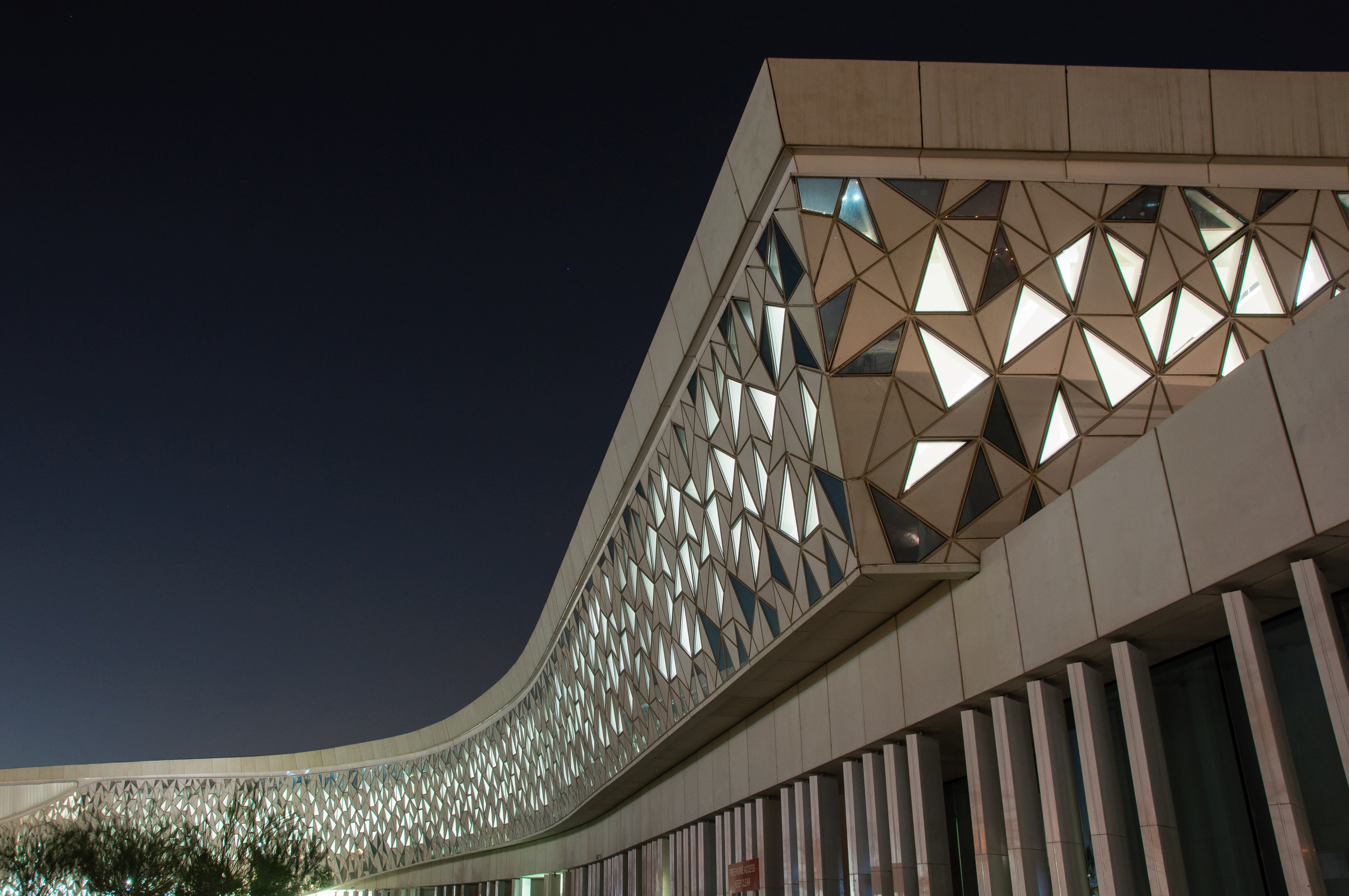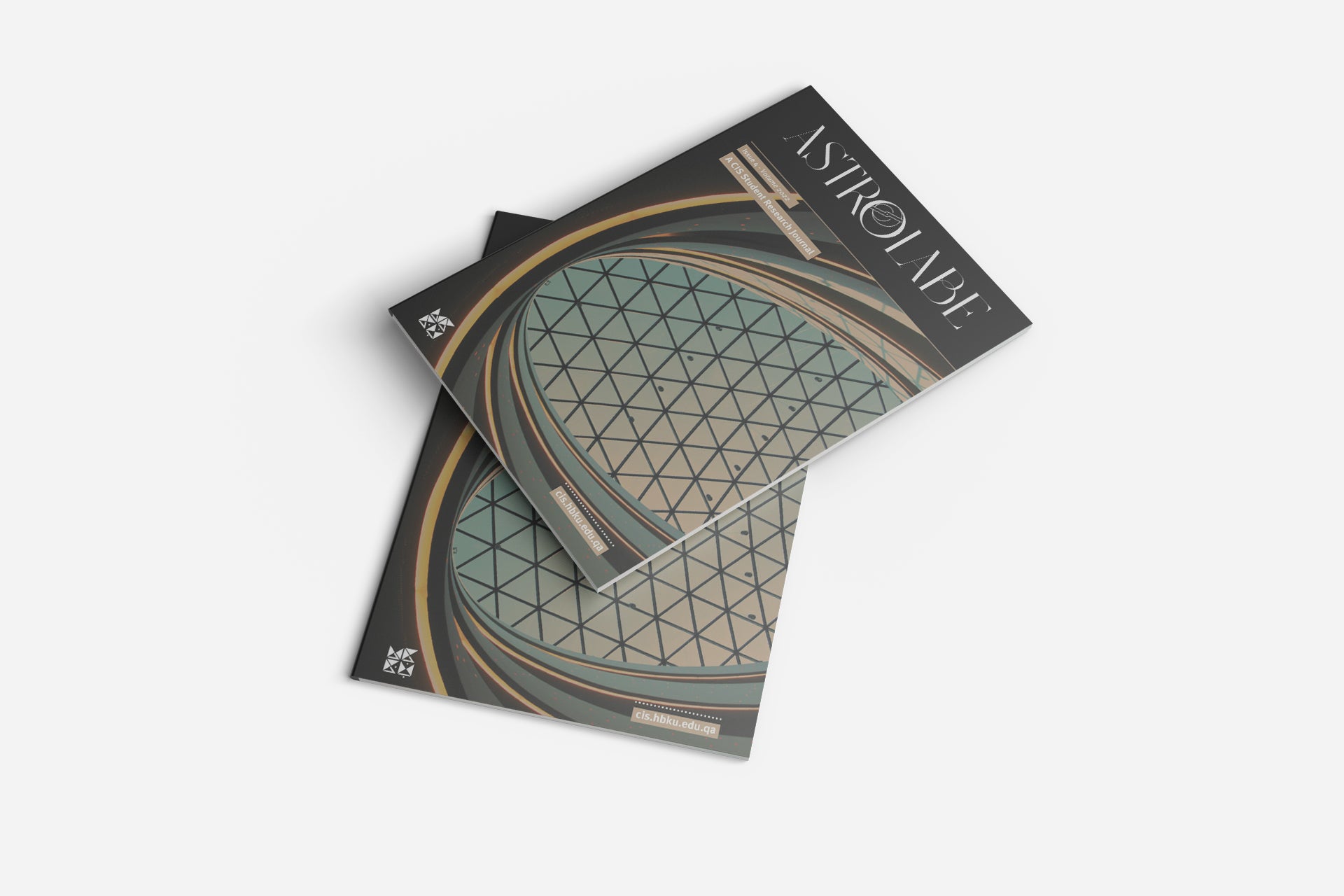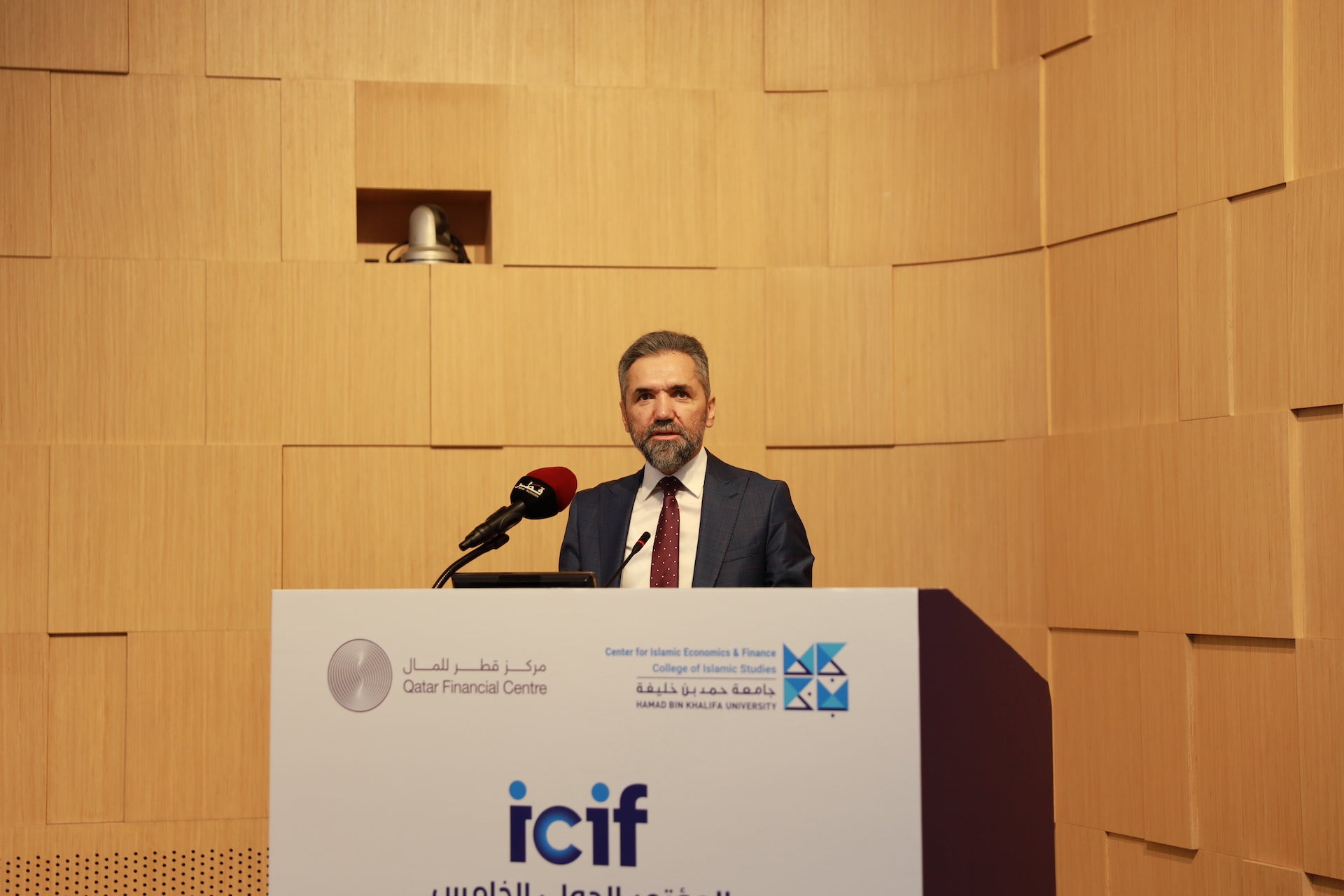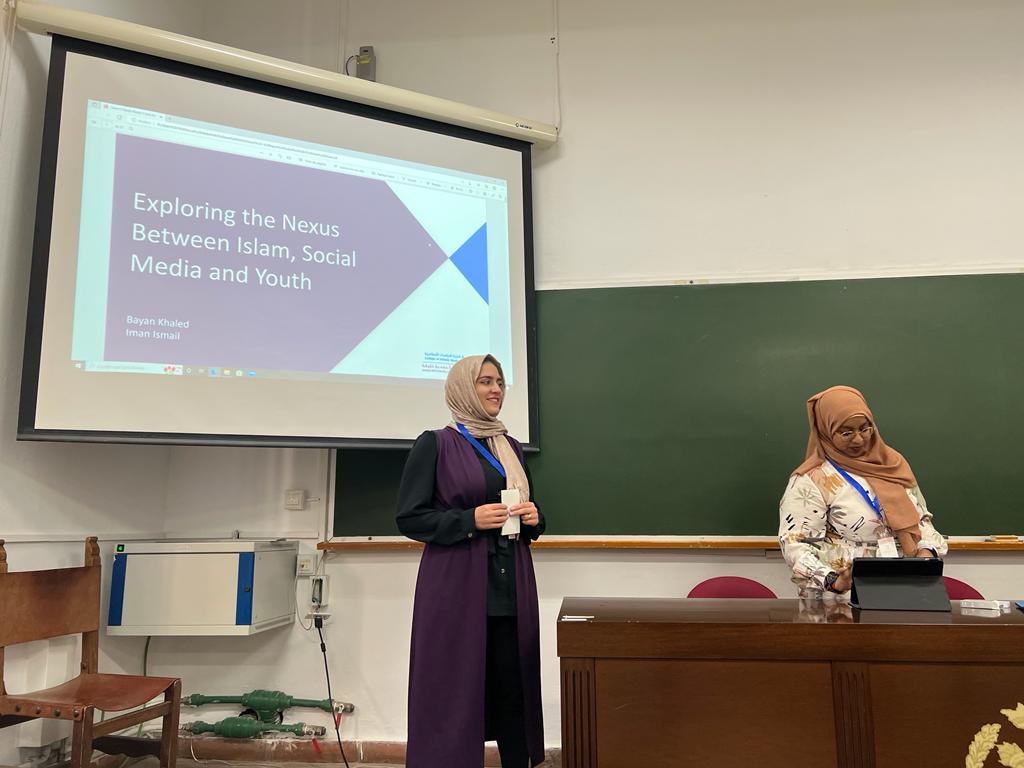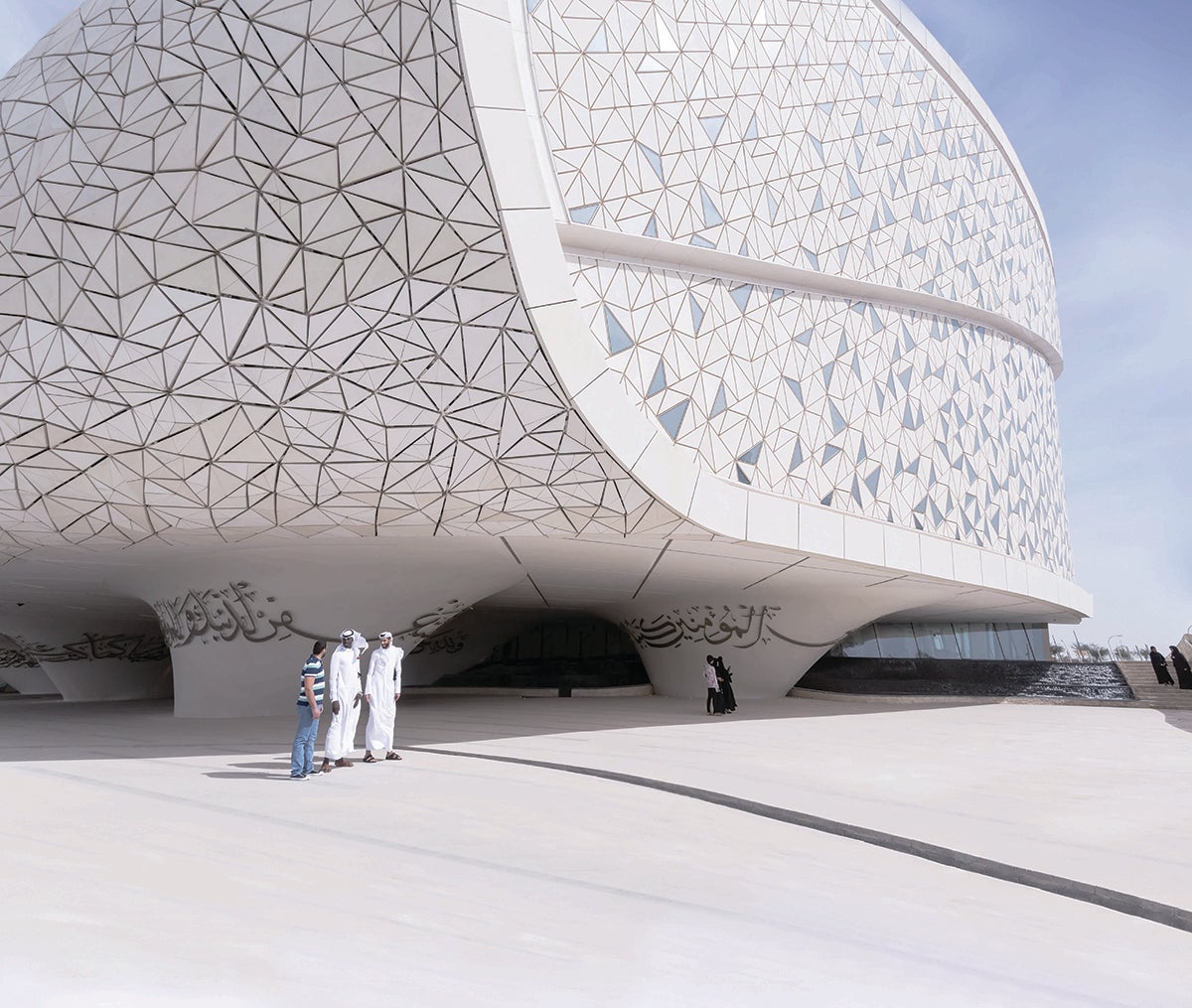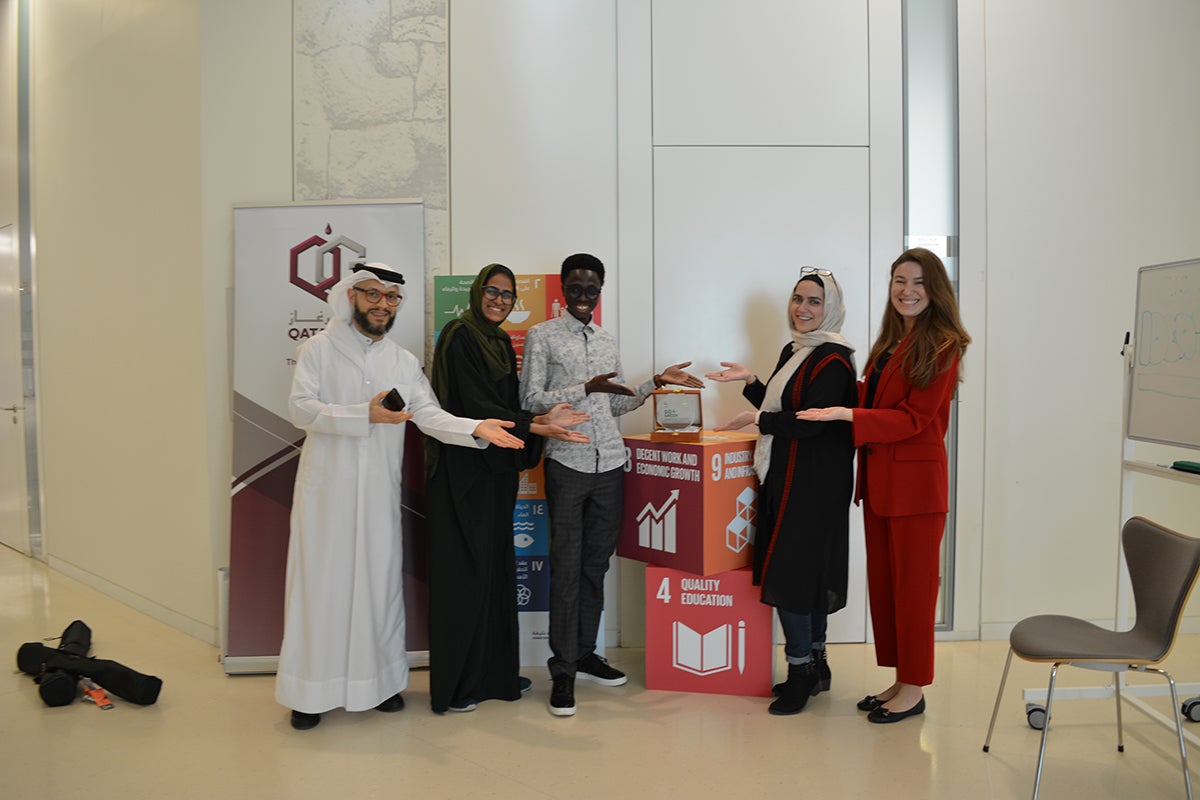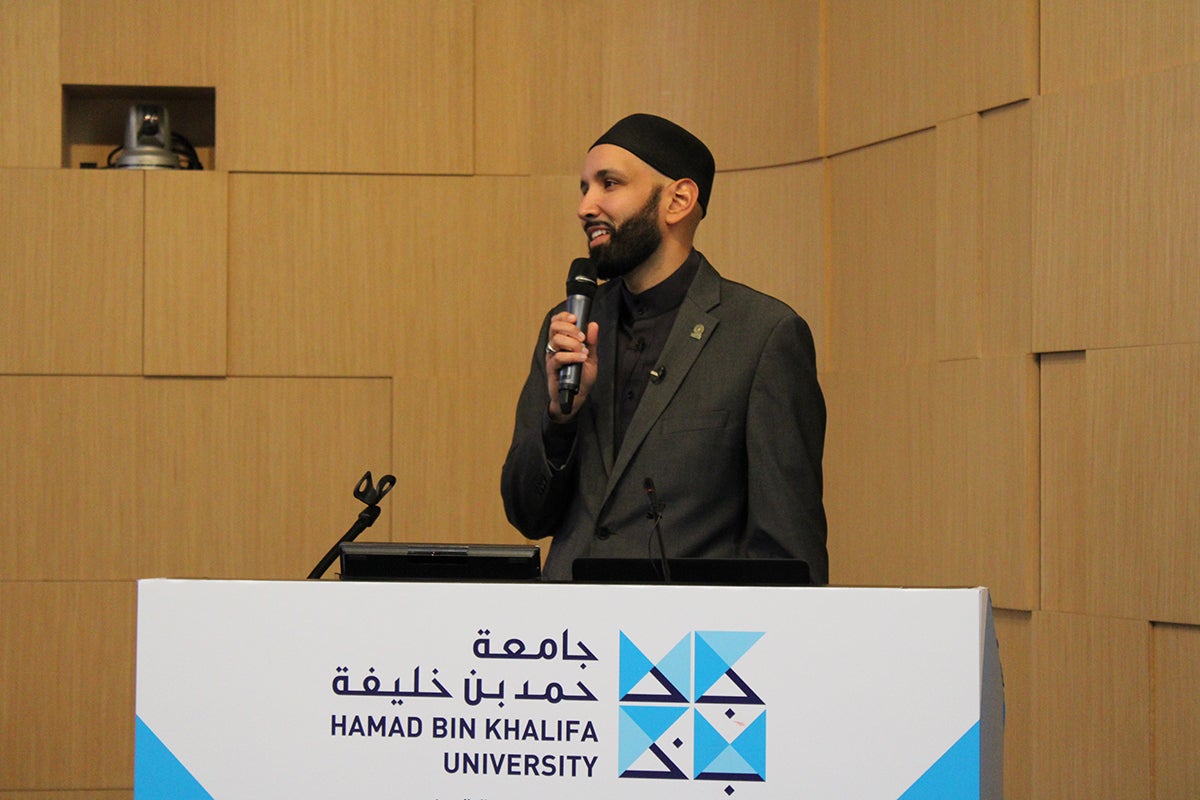By Bayan Khaled, Evren Tok, and Iman Ismail, College of Islamic Studies at Hamad Bin Khalifa University
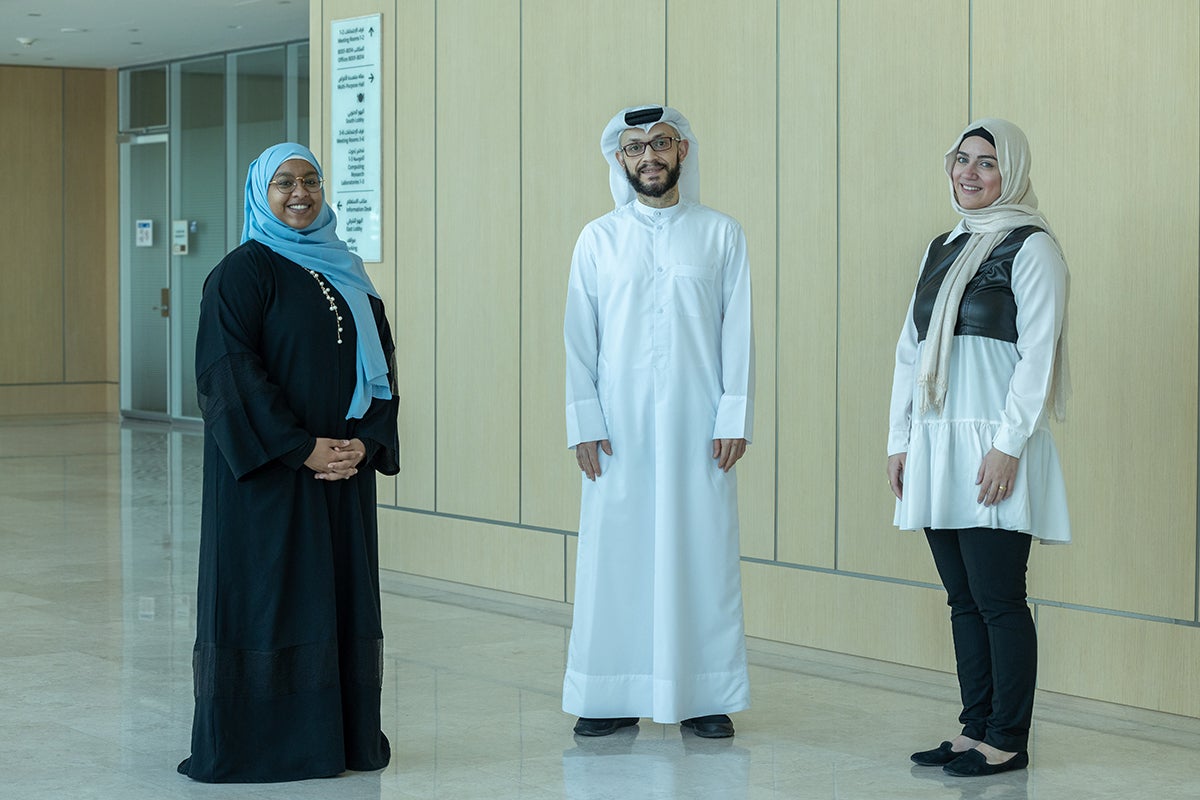
Over the next two years, the risk of youth disillusionment may become a significant problem, a recent Global Risks Report cautioned. A generation that has already faced exceptional pressures in a lifetime is now entering a stunted labor market, with potentially new barriers to its prospects for economic and social mobility that further undermine the fragile social cohesion in many societies. Any hope we have of realizing the Sustainable Agenda 2030 must include opening pathways for youth to acquire the tools and skills for a more sustainable post-pandemic world.
When considering the role of education in such a global effort, we find that a common qualm of many students at both the secondary and tertiary level is the absence of opportunities to understand the practical application of their studies, and implement their academic work in the real world. Youth-centered innovation programs and competitions more often fail to address this concern, suggesting a shortcoming in the four-step model used, which typically progresses from ideation to design development, to proposal presentation, and finally, the awarding of a cash prize to the winning proposal.
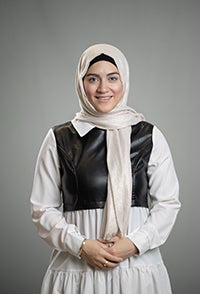 Innovation at the organizational level
Innovation at the organizational level
In an effort to reframe the approach to youth-centered programming, the “Science, Faith, and Innovation for Human Dignity” program - or Schifa - under Maker Majlis, has sought to revisit the essence of the program agenda and turn it into something that is revolutionary in its own way.
The foundational principle of Schifa, the transliteration of the Arabic word شفاء, or healing, is multidirectional, engaging youth and professional mentors in a cycle of co-creation and co-production of academic knowledge in an entirely non-academic environment.
Human dignity at the center
At its core, the seven-month Schifa program is a means of advocating for, and working toward, the healing of human dignity and the improvement of our collective well-being. With the ravaging consequences of the COVID-19 pandemic and its impact on people’s lives and livelihoods globally, the preservation of human dignity has fallen by the wayside as we allow wealth and status to define who is worthy of being saved and who is ultimately expendable. Though the pandemic is a shared global experience, it has revealed the starkness of a divided world driven by money and fearful of financial ruin, and made many of us forget our common humanity.
As the world slowly begins to reopen and adjust to the new normal of seemingly endless mask mandates and vaccination efforts at national levels, the Schifa program seeks to revive the traditions of humanness and kindness that are natural to us all. By recognizing the independent powers of science, faith, and innovation, Schifa establishes a more cohesive dialogue between all three, with human dignity at the center.
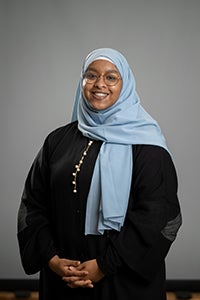 Building blocks of the journey
Building blocks of the journey
The program’s approach is simple, with a more condensed three-step process, and more complex, exciting intermediary steps that lead to collaboratively developing exceptional content.
Step 1 is Educational Integration. In collaboration with Doha Debates, the Maker Majlis team and event facilitators will begin with a series of Deep Dive (creative thinking) discussions and Halaqa Talks (inspirational, TED-style talks). Participants will benefit from knowledge exchange and be guided through a systems-thinking process that will ground them throughout the Schifa program as they grapple with and gradually resolve complex global issues.
In Step 2: the Ideathon stage, with the support of Qatar Scientific Club, participants will begin generating a project, taking inspiration from the rich history of Islamic civilization and contemporary inventions for improving well-being. Participants will become the mentors, rigorously developing their ideas into feasible, fundable projects seeking to solve problems in their local and global communities while realizing their own potential to transform human lives and restore the dignity of others.
As with every successful innovation-driven initiative, the most feasible and creative project ideas will become a reality. In Step 3: Islam Lab, participants are immersed in a makerspace shaped by the co-design and co-production of an academic and educational curriculum under the auspices of the lead mentors.
Participants still seeking more will be given the opportunity to design research initiatives under Hamad Bin Khalifa University (HBKU)’s College of Islamic Studies, guided by reputable scholars to conduct thematic research focused on the nexus between science, faith, and innovation.
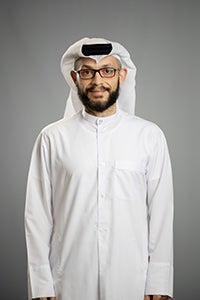 A new roadmap
A new roadmap
‘Science, Faith, and Innovation for Human Dignity’, or Schifa, is reframing the way we think about engaging the youth, and the way we think about youth-centered programming. Schifa’s main objectives are for scholars, professionals, entrepreneurs, and innovators to learn faith-driven practices to build a more sustainable and resilient world that protects human dignity. Second, to shift the current mindset of science communication to a more human-centered science conversation. Youth will get to design innovative and impactful solutions serving humanity, and craft business plans and Theory of Changes (TOCs) to translate ideas into viable solutions such as a policy, behavior change, product, service, or process. Schifa will ultimately cultivate digital safe spaces where ethical behavior and moral reasoning is promoted and where, together, young scholars, professionals, entrepreneurs, and innovators, can create a roadmap for humanity.
Schifa kicked off on October 6 and is hosted at the College of Islamic Studies at HBKU in collaboration with Qatar Scientific Club, Doha Debates, Voicing Voices, and SciCommX.
For more information about this groundbreaking program, please visit https://www.hbku.edu.qa/en/cis/maker-majlis and follow the Maker Majlis team on Instagram @makermajlis.
Bayan Khaled is a Research Fellow at the College of Islamic Studies while Dr. M. Evren Tok is Assistant Dean of Innovation and Community Engagement, Associate Professor of Islam and Global Affairs, and founder of Maker Majlis. Iman Ismail is a senior at Georgetown University in Qatar.
This article is submitted on behalf of the author by the HBKU Communications Directorate. The views expressed are the author’s own and do not necessarily reflect the University’s official stance.




